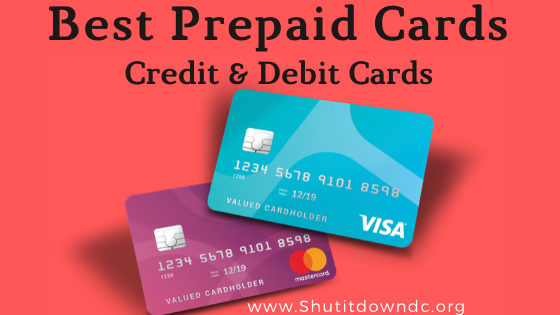Are you looking for credit cards for fair credits? If so, then you’re at the right place. Credit Cards for fair credit are focused on those who have scored between 630 and 689 in the FISCO range and are preparing their credit from the very start or restoring their credit after making mistakes.
You need not feel helpless as there are certain credit cards you can avail of even after having an average credit score. You can use those cards and enjoy the reward programs and avail beneficial perks. You can have all that even for no annual payment and no charges for foreign transactions.
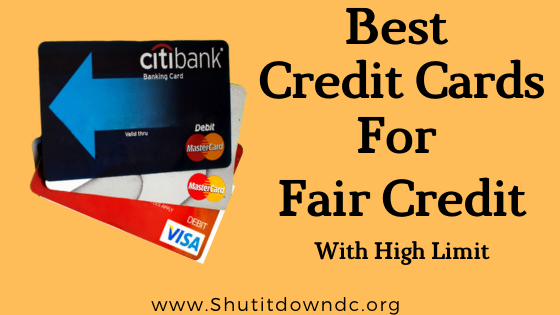
Related Read:
You also need to be informed that you can be qualified for these cards easily; however, they also come with a higher interest rate. It is no issue if you make the full bill payments on time. Above all, as a responsible consumer, you should always try to maintain a good credit score while signing up for credit cards.
Also, be informed that the issuers of these credit cards do not reveal your exact credit score essentials. Therefore you should always read all the terms and conditions properly.
10+ Best Credit Cards for Fair Credit
The following are some of the best credit cards for fair credit.
1. Petal Visa® Credit Card
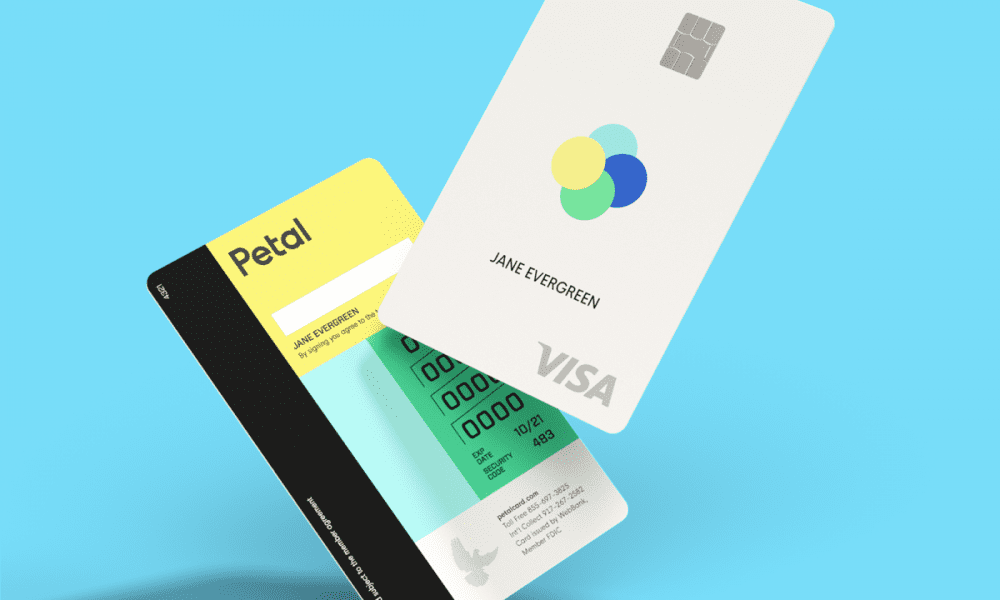
This card is best for no fees. Here is an overview of the card features_
- Reward: You can get 1% cashback on any purchase with this credit card and 1.5% when you do 12 monthly payments.
- Annual fees: $0
- Balance transfer fee: $0
- Welcome Bonus: $0
- Intro APR: None
- Variable APR: 14.49% to 25.74%
- Fee for a foreign transaction: None
- Reward after 1 year: $ 219
- Reward after 5 year: $ 1,093
Pros & Cons of Petal Visa® Credit Card:
Pros
- You are not required to produce your credit history
- Proper cashback features
- Card range: $500 to $ 10,000
Cons
- There is a welcome bonus offered
- No special offers for finance
With responsible expenditures and timely payment, you can enjoy good credit scores.
2. Discover it® Secured Credit Card
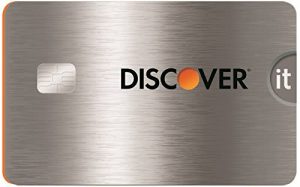
This can be considered the most secured card. Here are the details_
Reward: You can get 1% cashback on any purchase with this credit card and 1.5% when you do 12 monthly payments.
- Annual fees: $0
- Rewards: with this credit card you can avail of 2% cashback on any transactions made at restaurants and gas stations and up to $1,000. You can also get an unlimited cashback of 1% on any other transactions.
- Balance transfer fee: 3% fee on intro transfer and 5% charge on future balance transfer. You are required to read the terms and conditions for a better understanding.
- Welcome Bonus: this credit card matches all the cash backs you have availed of at the end of the first year.
- Intro APR: for the first 6 months, the Intro APR is 10.99% on balance transfer
- Variable APR: 24.49%
- Fee for a foreign transaction: No charges
Pros & Cons of Discover® Credit Card:
Pros
- There is no annual fee required with this credit card
- Your credit card account gets reviewed automatically at the month-end.
- Beneficial cashback offers
- You do not get the minimum expenditure requirements to avail of the bonus.
Cons
- The variable APR is considerably higher.
- The credit card limit is much lower for making big transactions.
3. Capital One® Platinum Credit Card
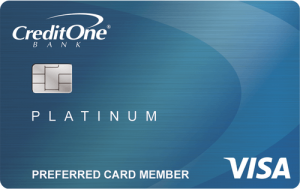
If you are a frequent traveler and seeking a Capital One Credit Card that suits your needs, this is the card for you. Don’t miss the features it has to offer_
- Reward: None
- Annual fees: $0
- Balance transfer fee: $0
- Welcome Bonus: $0
- Intro APR: None
- Variable APR: 26.99%
- Fee for a foreign transaction: None
Pros &Cons of Capital One® Platinum Credit Card:
Pros
- No annual fees are required with this card
- No charges required for purchasing the U.S.A
- You can avail of some exciting travel perks, such as accidental cover, roadside assistance as well as rental vehicle damage waiver.
- You can get a higher credit limit when you make a payment on time for the first five months.
Cons
- the variable APR is very high
- This credit card does not offer any reward program.
4. Deserve Edu MasterCard
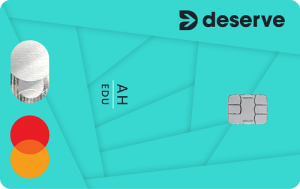
This card is best for college students. Following are the details_
- Reward: 1% cashback of 1% on any transactions made with this card.
- Annual fees: $ 0
- Balance transfer fee: $ 0
- Welcome Bonus: NA
- Intro APR: None
- Variable APR: 20.49%
- Fee for a foreign transaction: None
Pros & Cons of Deserve Edu MasterCard:
Pros
- This card requires no annual fee
- You can avail 1 year free of Amazon Prime Student
- This card requires no social security number for applying
- You don’t have to submit your credit card history
Cons
- This credit card offers no financing offers
- You cannot enjoy any welcome bonus with this card.
5. QuicksilverOne from Capital One
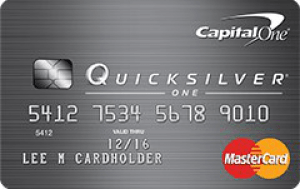
This card offers you 1.5% cashback on every purchase. It does cost a $39 annual fee, but there are more benefits than other cards. You get unlimited access to your credit score and tools to monitor your credit profile for free.
Check out all features of Capital One QuicksilverOne Credit Card:
- Reward: 1.5% cashback on every purchase
- Annual Fees: $39
- Balance Transfer Fee: None
- Intro APR: None
- Variable APR: 26.99%
- Fee for a Foreign Transaction: None
- Rewards after 1 year: $99
- Welcome Bonus: $0
Pros & Cons of QuicksilverOne from Capital One:
Pros
- Free access to credit score.
- 1.5% cashback on every purchase
- $0 fraud liability
- Automatically considered for a high-end line after 6 months
Cons
- Charges annual fees
- It doesn’t boost the rewards section.
6. Upgrade Visa Card with Cash Rewards
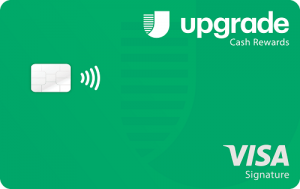
This card is available for every type of credit category. It also offers you 1.5% cashback on every purchase. Look at other features:
- Reward: 1.5% cashback on every purchase
- Annual Fees: $0
- Balance Transfer Fee: None
- Intro APR: None
- Variable APR: 8.99% to 26.99%
- Fee for a Foreign Transaction: None
- Welcome Bonus: $0
- Maintenance Fees: $0
Pros & Cons of Upgrade Visa Card:
Pros
- Rewards with upgradeable credit options
- Outstanding balance automatically changed into an installment loan with a fixed monthly bill
- You can lend money against the credit limit
- No annual fees and 1.5% cash back on every purchase
Cons
- High variable APR
- No welcome bonus
7. Avant Credit Card
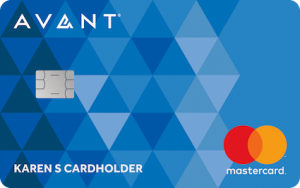
This is another best choice for fair credit with an easy and fast application process.
Features
- Reward: None
- Annual Fees: $0-$59
- Balance Transfer Fee: None
- Intro APR: None
- Variable APR: 23.99% to 25.99%
- Fee for a Foreign Transaction: None
- Welcome Bonus: $0
- Maintenance Fees: $0
Pros & Cons of Avant Credit Card:
Pros
- No deposit required
- Reports to all major credit bureaus
- $0 fraud liability
- No penalty APR
Cons
- No rewards
- High annual fee
8. Indigo® Platinum Mastercard
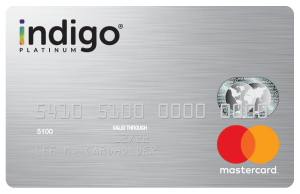
This card is best for those who have poor or average credit.
Features
- Reward: None
- Annual Fees: $0-$99
- Balance Transfer Fee: None
- Intro APR: None
- Variable APR: 24.90%
- Fee for a Foreign Transaction: 1%
- Welcome Bonus: $0
Pros & Cons of Indigo Platinum Mastercard:
Pros
- This card is applicable even for poor credit
- The quick and easy prequalification process
- Free online account access
- Zero fraud liability
Cons
- No reward section
- High annual fees
9. Jasper Mastercard®
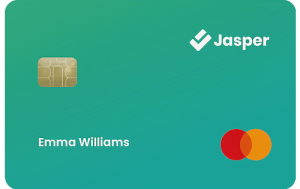
This card offers a 6% cashback on referring and 1% cashback on all purchases. You can apply for this card without even credit history.
Features
- Reward: 1% cashback on all purchases and 6% referring cash back
- Annual Fees: $0
- Intro APR: None
- Variable APR: 15.49% to 24.99%
- Fee for a Foreign Transaction: None
- Welcome Bonus: $50 statement credit
- Maintenance Fees: $0
Pros & Cons of Jasper Mastercard:
Pros
- Get up to $5000 credit limit
- $50 statement credit on sign up
- No credit history needed to apply
- Get access to valuable protections and benefits
- Application available to manage your account
Cons
- No balance transfer options
10. Credit One Bank Platinum Visa
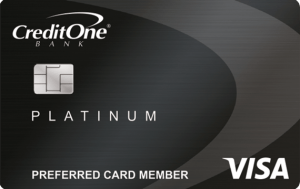
This is an unsecured credit card available for any kind of credit score. You can also get 1% cashback on all purchases.
Features
- Reward: 1% cashback on all purchases and 10% cash back rewards for merchants
- Annual Fees: $0-$99
- Balance Transfer Fee: None
- Intro APR: None
- Variable APR: 17.99% to 23.99%
- Fee for a Foreign Transaction: 3%
- Welcome Bonus: $0
- Maintenance Fees: $0
Pros & Cons of Credit One Bank Platinum Visa:
Pros
- Free online access to Experian credit score
- 10% additional cashback if you participate in merchants
- Zero fraud liability
- Low APR for an unsecured card
Cons
- High annual fees
- Unclear terms for approval
What is considered fair credit?
A Fair or average credit score ranges between 620 to 679, which is just above a bad credit score. Certain credit cards are available for a fair credit score. But it would be best if you are above average to get approval for the best credit cards.
A fair credit score is less risky than a bad credit score because your credit card might decline for approval with a bad credit score.
How can a credit card help you improve fair credit?
If you use your credit card responsibly, you can improve your fair credit to good or excellent credit. Follow these key points to improve your credit score:
- Check your Credit Report: To improve your credit score, you must check your credit report time-to-time. Your credit score is calculated based on your credit card action, and your credit report mentions everything. In this way, you can identify your errors and improve it before it becomes bad.
- Pay off bills on time: If you have any remaining bills or credit card loans, you must pay them off immediately so you can slightly improve your credit score. Payment history is considered an important factor to count credit score, and if you’re late on your dues, your score will go down.
- Credit Utilization: This is another important factor to consider when calculating your credit rating. It shows the types of credit you have and how much you depend on credit money. It is wise to use a credit below 30% to improve credit. If you are a multiple credit card user, you can see how much money you spend on credit.
- Don’t Remove old accounts: Some people with a negative history remove their old account from the credit report to make it look good, which is not a smart move. This isn’t good for your creditworthiness. If you have a negative history, it will automatically be removed from your credit report after some time.
- Plan your credit: Always plan your credit to avoid falling your credit to a dramatic score. Don’t apply for too many credit cards if you’re unable to pay bills on time. Because it will lead to you an immense amount of outstanding balance, which is harmful to your credit.
What to know before applying for a credit card?
Before applying for a credit card, you should know about 10 important aspects:
- Types of Credit Card: The first thing you need to know before applying for a credit card is the type of credit card. Always go for the particular credit card that suits your needs.
- Income: To apply for a credit card, you need to submit your income information to your credit card issuer to confirm whether you’re able to repay or not.
- Low Credit Limit: Your credit card issuer will offer you a low credit limit to reduce the risk. Once you manage your card responsibly and get a good credit score, you will get options to increase your credit limit.
- Terms & Conditions: Always read the terms and conditions before agreeing to avoid circumstances. And also, read the terms of all APR charges, annual fee, applying fee, and other significant details.
- Interest Charges: You won’t be charged any interest if you’re paying your full bill on time. Interest will be charged on the remaining balance you carry for another month. The interest will be applied to the balance according to the card’s APR.
- Grace Period: The grace period is the time that starts from the end of the billing cycle to the next due date. You won’t be charged any interest during this period, but always try to pay the bills before this period is over, or you will be charged with interest.
- Fees & Charges: Always check about the significant charges and fees before applying to a credit card.
- Penalty Fees: When a credit card owner violates the terms & conditions of a credit card, a penalty fee will charge on that person with very high interest. Always try to avoid penalty fees which are not good for credit.
- CUR (Credit Utilization Ratio): The CUR is a ratio of your credit that you are using is divided by the total amount of your credit limit. It’s necessary to check up CUR, so you spend only the credit limit’s respective amount.
- How Credit Cards Affect Your Credit Score: This is another main aspect you need to understand. Using a credit card influences your credit score. If you use it responsibly, you get good credit. If not, you will get your credit score down.
How to choose a credit card for fair credit?
When it comes to choosing a credit card for fair credit, look for these features before owning one:
- Reports to the credit bureaus: There are some major credit bureaus like Experian, TransUnion, and Experian that gather credit reports to analyze your credit score. So make sure your credit card reports to one of those bureaus to ensure your payments and credit habits are being recorded.
- Annual Fees: Some credit cards don’t charge annual fees. But if a card applies annual fees, it might offer other rewards and benefits to make sure your fees are worth the cost. You can also get a tool to monitor your credit profile. But if you want only fair credit, you can go for the card that charges no annual fees.
- Rewards: Credit cards don’t necessarily require a rewards section for fair credit. But it’s good for you if you find a credit card that offers rewards and a good credit score.
- Free Credit Score: You can analyze and improve your fair credit with a free credit score. Because credit score identifies your loan eligibility.
- Be Upgradeable: If you want to improve your credit, think above than average credit score. A good and excellent credit provides more offers and limits than fair credit.
What to avoid with credit cards for fair credit?
Look at the bad aspects that need to be put away:
- Always try to pay your bills in full to avoid interest. If you don’t, you’ll carry over the balance to the next month, and you’ll be charged interest. And if you keep carrying over balance further, it will cause you a low credit score.
- If you pay only the minimum, try to pay it on time. Because if you’re late, you may have to pay a late fee which is not good for credit.
- If you have average credit, you won’t be able to apply for cards with high-end credits. You can still choose good credit cards. So try to make more than average credit with it to get a high-end credit card.
What impacts your credit score?
5 major aspects impact your credit score:
- Payment History: Your credit score mostly depends on how convenient is your billing. The most you delay your due, the most your credit will go down.
- Owed Amount: Try not to use more than 30% of your credit limit because less credit leads you to a high credit score.
- Length of Credit History: Credit scoring also depends on your average credit age, which is your oldest and newest accounts.
- New Credit: Whenever you apply for new credit or a new credit card, your credit score will likely change.
- Credit Mix: Loan like car loans, a mortgage, and credit loans will help you build your credit score.
Is a fair credit score good?
A fair credit score is definitely not considered that great as good and excellent credit. If your creditworthiness is below good, you won’t get credit cards with the best offer.
But don’t lose hope.
You can still make your fair credit score into a good or excellent one by responsibly using your credit card and consistent payments on time.
What do I do if I’m rejected for a credit card?
There are certain reasons you can face rejections when applying for a credit card. But you can take these steps you can recover and get the right card for you:
- First thing, you need to check your credit score and reports after being rejected. Because credit score is the main aspect of issuing a credit card. If there’s no error in your credit score, you can show the credit report to the issuer.
- If you can’t even get a credit card for fair credit, you can get a credit-builder loan. This type of loan will help you build credit, but you can’t get money for a home or car loan.
- You can get rejected if you carry an undesirable amount of balance that needs to be paid. But you can request your issuer to make an arrangement for you to pay all your outstanding balance.
- Do not close your old account because it contains your payment history for several years. But if you close them, you’re just closing the good credit with it. So keep using after paying all your bills.
- If you aren’t getting a reasonable fact for getting rejected, you can get a suitable explanation from your issuer. You can directly ask your issuer the reason for your rejection.
How fast can credit improve?
Your credit improvement mostly depends on your economic situation, credit behavior, and responsibility. You need at least six months to set up a good credit score if you don’t have any credit history. And to do that so need an active credit account.
If your financial condition is good enough and you pay your full bills on time, your credit score goes up quickly. Or you can be smart enough to borrow only a limited amount that you can pay on time.
How consumers with fair credit should use a credit card?
If you have average credit and applied for a fair credit card, your first goal should be to improve your credit. However, you can apply these steps to use your fair credit card properly:
- Try not to go above the utilization ratio because a fair credit card needs to be used with credit limits. You better keep your balance low and try to avoid heavy interests.
- Try not to harm your credit by any means because your credit is already on edge. You will face circumstances if you go below the average credit.
- Cards with no annual fee will be a smart choice for you if you have fair credit.
- Some cards offer 1% cashback on all purchases, and you can try one of these to practice with rewards.
FAQ:
Credit cards like Jasper Mastercard, Avant Credit card, and Indigo Platinum Mastercard are some easiest options for fair credit.
You can try Petal 1 No Annual Fee Visa, Capital One Platinum Credit Card, or QuicksilverOne if you have a credit score of 600 to 649.
650 is considered an average credit score. So you can apply for every credit that I have listed above.
You can try Jasper Mastercard or Indigo Platinum Mastercard if you have a poor credit below 550.
You may also like:
- Best Synchrony Credit Cards
- Best Credit Cards for Students
- Best Credit Cards For Young Adults
- How Many Credit Cards Should I Have

Hi This is Bavuma founder and writer for shutitdowndc. I am from a middle class family with 6 members. My parents being both bankers, elder sister being a CA have multiple choices as and when I think about shopping options. I am sure you will all agree that in the present scenario credit cards are preferred over carrying currency with us.



